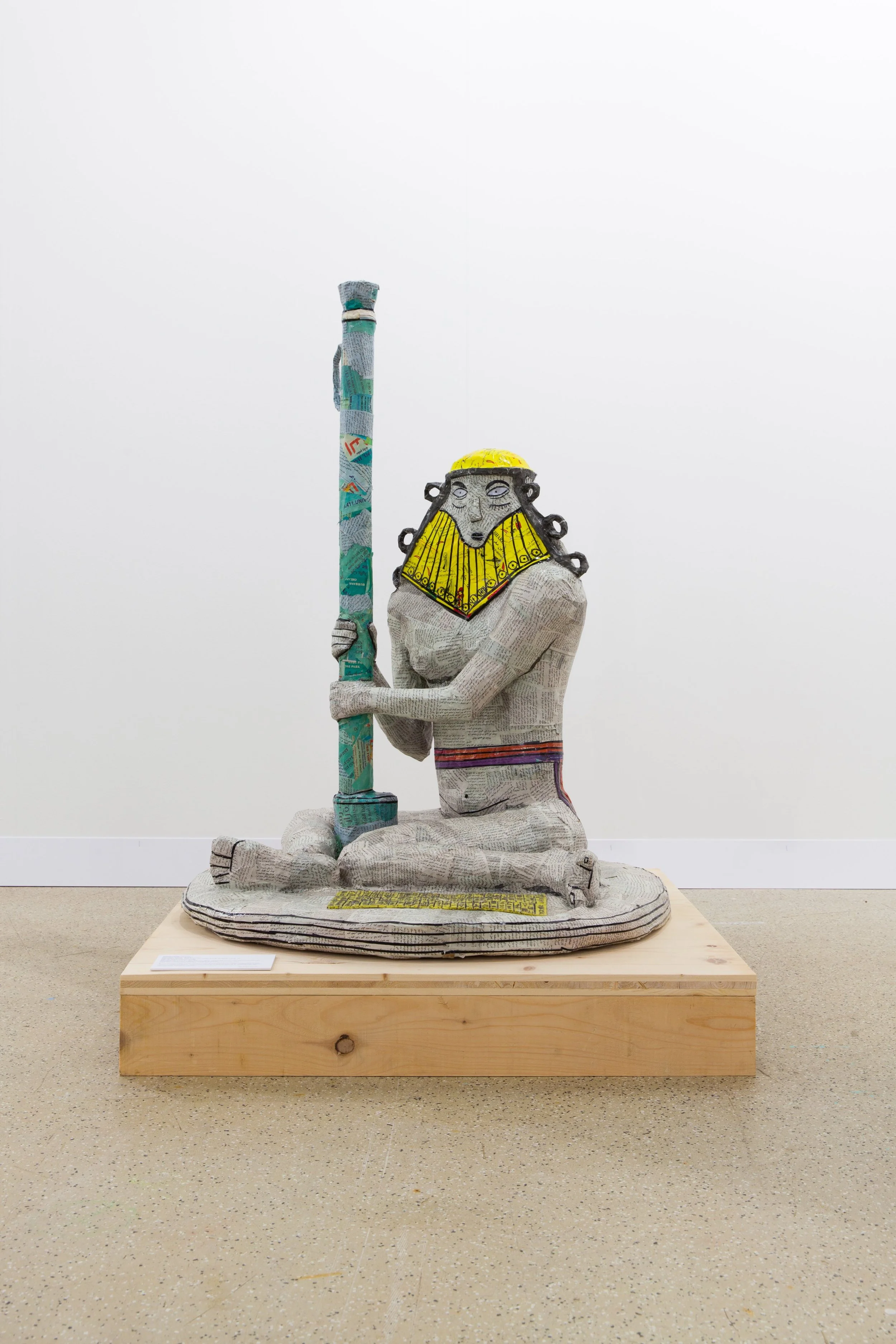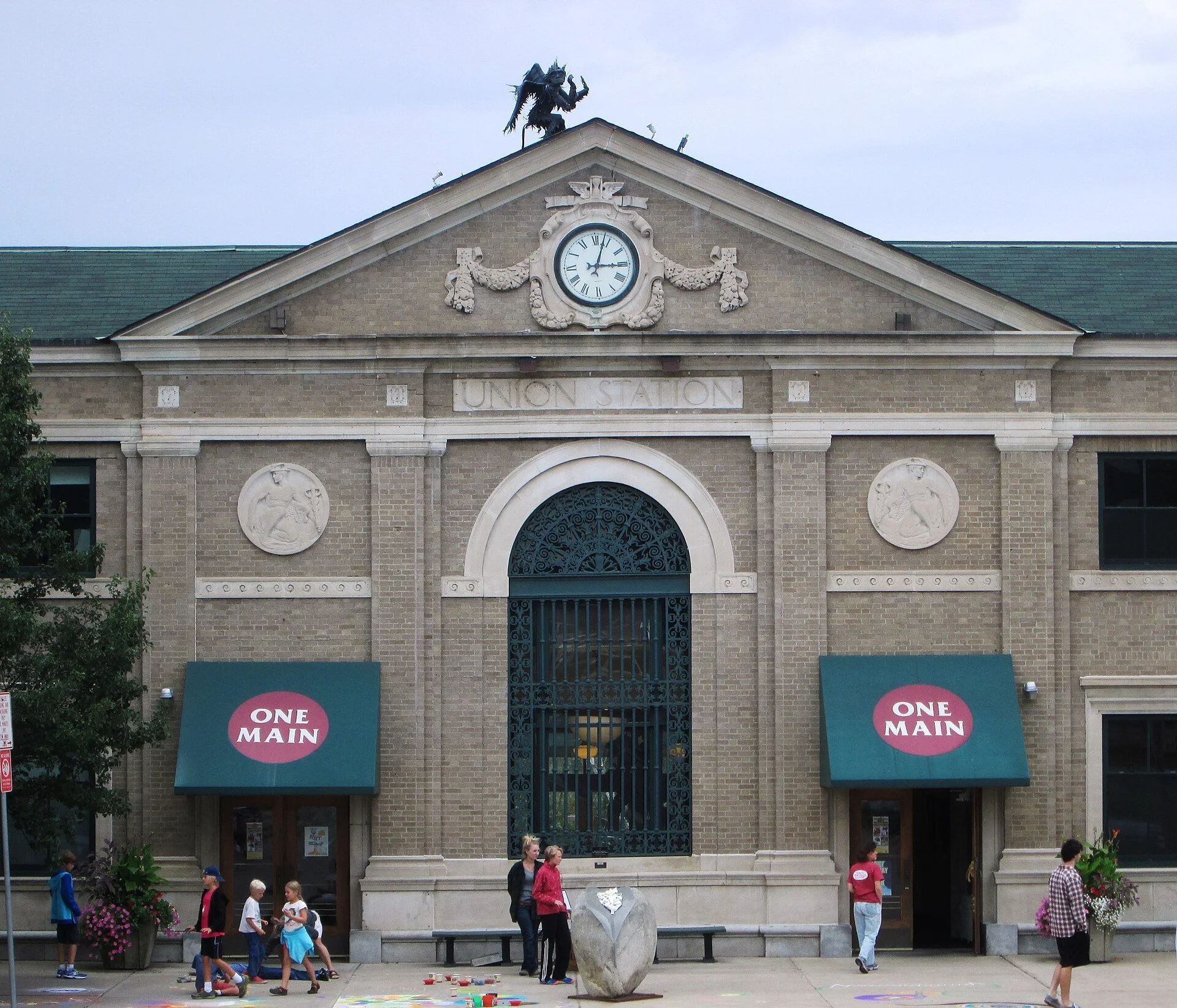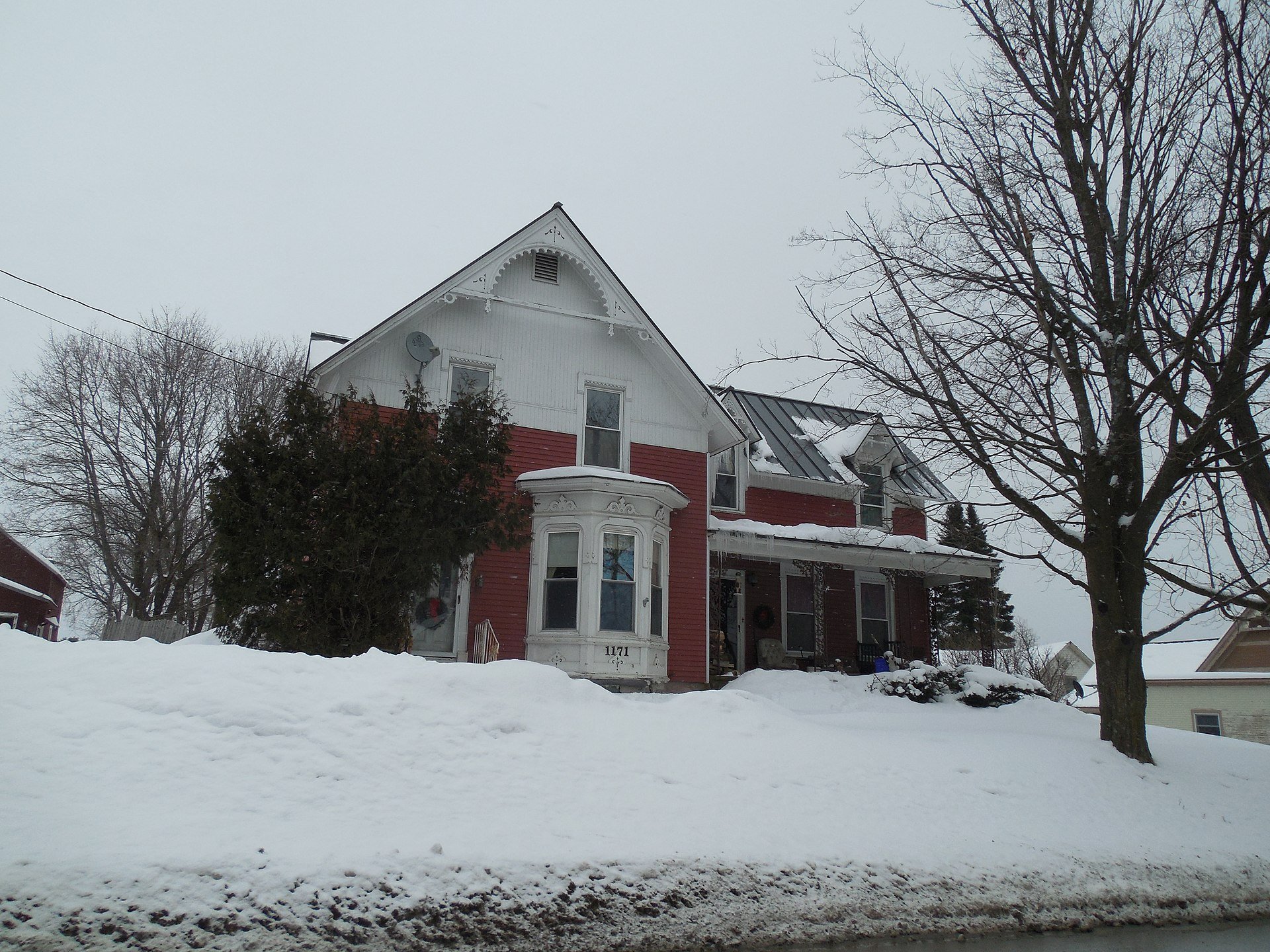Troubling origin stories
“The invisible enemy should not exist – Seated Nude Male Figure, Wearing Belt Around Waist” (Middle Eastern packaging, newspapers, glue and cardboard), by Iraqi-American artist Michael Rakowitz, in the show “Never Spoken Again: Rogue Stories of Science and Collections,’’ at the Fleming Museum of Art, at University of Vermont, Burlington, through May 18.
— Courtesy of the artist and Barbara Wien Gallery.
The museum says the show is a traveling exhibition that reflects on “the birth of modern collections, the art institutions that sustain them, and their contingent origin stories to reveal a universe of erasures, violence, and fortuity. Considering how institutional collections organize our lives, “Never Spoken Again” brings together artists whose works open up a critique of material culture, iconography and political ecologies.
“In turn, each of the works sheds light on myths, simulations, fake currencies, war games, and the slow violence of systematic racism that historically underpin collecting practices. Together, they invite inquiry into how our collective histories are presented, curated, fabricated, or all of the above. With wit, curiosity, and compassion, “Never Spoken Again” asks the question most museum visitors dare not: How did these objects and artworks get to a gallery in Vermont anyway? And why?
Burlington's Union Station was built in 1916 by the Central Vermont Railway and the Rutland Railroad.
Interacting with the land
"Wedding Cake House, Iron Furnace Road, Pittsford, Vermont," by James Hope, in the show “Land Marks: Paintings of Human-Altered Landscapes,’’ at the Fleming Museum of Art, Burlington, Vt., through May 18.
The museum explains:
Focusing on portrayals of Vermont and elsewhere in New England, the show brings together 15 works, spanning roughly 1800 to the late 1900s. These paintings and a mirror, with a reverse painting on glass, infuse the Fleming’s Marble Court Balcony with color and with imagery that registers human interactions with the land.
But you get used to it
“Cold Morning” (1951), by Francis P. Colburn (1909-1984) at the Fleming Museum of Art, at the University of Vermont, in Burlington. He was a native of Fairfax, Vt.
A house in Fairfax during winter
— Photo by Doug Kerr






